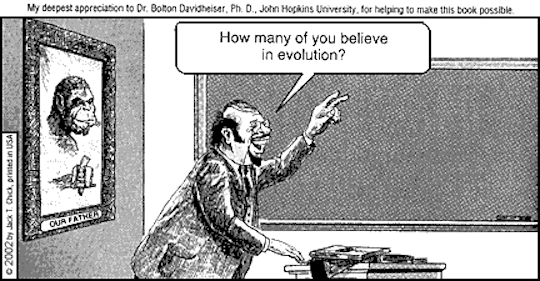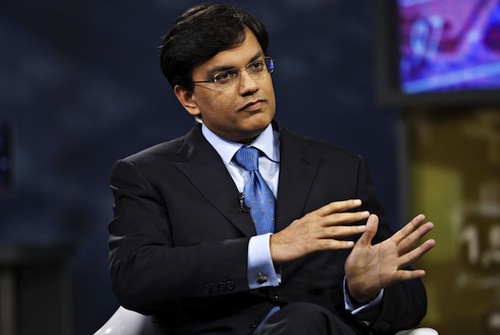Like a lot of people, Jack Chick had a hard time drawing hands. It’s good that thing on the end of the professor’s sleeve has fingers, or we might not recognize it. But look at his pear-shaped body, his smiling overbite, his stooped mien. He is very much the natural man, trapped in a box—heck, let’s call it cage—made from the rigid lines of the chalkboard, the corner, the portrait, the podium, even the frame itself. Here is a person caught by a fixed idea, a simian out of place in the world of humans. Rembrandt it ain’t, but this work of comic art is at least as good as something you’d find in Mad magazine. And it’s all the vision of one person. The panel above is from a Chick tract, those little black-and-white pamphlets on evangelical themes you have probably found on the bus or at the fair. The man behind them, Jack Chick, died in his sleep Sunday night. I do not admire his beliefs, but I envy his life.
Tag Archives: .pdf
Citigroup’s disappearing plutonomy report
In my surprisingly arduous attempt to find 2007 revenue figures for Citigroup yesterday, I ran across something called the plutonomy report. Back in 2005, Ajay Kapur—then CFA of Citigroup—produced this industry note describing investor and consumer behavior in economies where a very small portion of the population controls a very large portion of national wealth. He called such economies plutonomies. “The world is dividing into two blocs,” Kapur writes—“the plutonomy and the rest.” He lists the United States, Canada, Australia and the UK among the plutonomy nations and puts continental Europe and Japan “in the egalitarian bloc.” Here in plutonomy country, “the rich absorb a disproportionate chunk of the economy” and therefore hold primary influence over aggregate indicators like savings rates, account deficits, consumer spending, et cetera. In 2006, Kapur produced a follow-up to the first plutonomy report, in which he argues that plutonomy countries,
have seen the rich take an increasing share of income and wealth over the last 20 years, to the extent that the rich now dominate income, wealth and spending in these countries…the tech whizzes who own the pipes and distribution, the lawyers and bankers who intermediate globalization and productivity, the CEOs who lead the charge in converting globalization and technology to increase the profit share of the economy at the expense of labor, all contribute to plutonomy.
It’s a controversial argument, especially from a bank that defrauded consumer investors to enrich itself and a billionaire hedge fund manager the following year. People would probably get angry about it, except the second plutonomy report has been steadily disappearing from the interent since it leaked.


